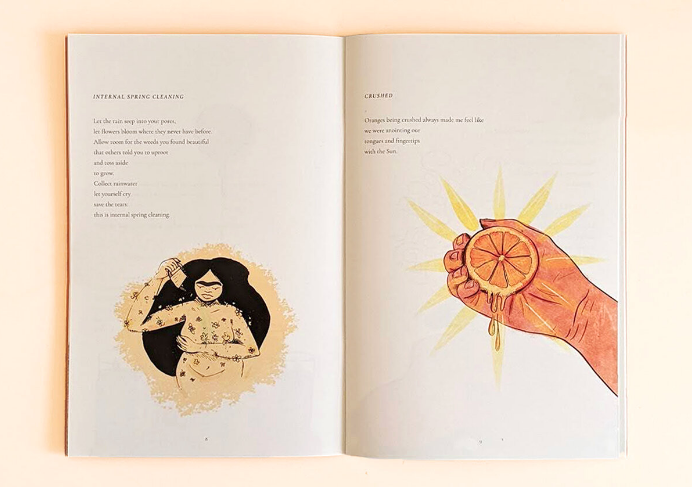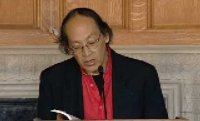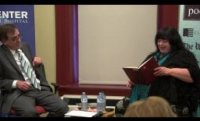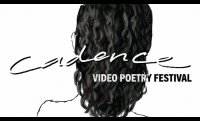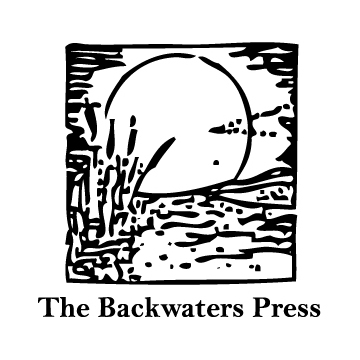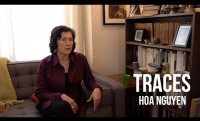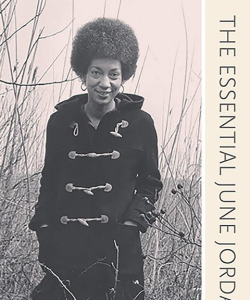Crushed Marigold
I am excited to share my thoughts after reading Christiana Castillo’s poetry chapbook, Crushed Marigold, illustrated by and Karla Rosas and published by Flower Press, a Detroit-based publishing practice centering womxn, femme, queer, and trans artists. Castillo is a Latina/Chicana poet, teaching artist, and gardener born in Rio de Janeiro, Brasil and living in the Detroit area. She is the recipient of fellowships from Room Project, Voices of Our Nation (VONA), and Disquiet International.
Castillo joined the Writing in Detroit virtual reading last October, sponsored by Poets & Writers, which offered an inspiring insight to her writing style and bright imagery. Crushed Marigold further expounds upon her writing with colors and textures juxtaposed against the theme of brown skin. In addition, the warm illustrations by artist Karla Rosas throughout the book leave the reader wondering what world we will be pulled into next with each poem.
A favorite poem of mine from Castillo’s collection is “Questions for the Moon,” which asks: “Does the Moon practice self care? / Does she have the time? / I know she controls the / tides / and the water within / us all / but / can she control herself?” The poem gently personifies the moon in a way that opens the reader’s mind to consider how the world around us not only responds to us, but how it responds to itself. The entire collection made me reconsider how we interact with the everyday aspects of our own cultures.
This collection also leaves me with a feeling of hope and perseverance with couplets like “in the midst of decay / there are always more seeds sprouting.” While Castillo touches on heavier topics such as colonization, there is always a sense of moving forward, of growth, of survival.
Crushed Marigold is available at Flower Press’s website and a percentage of the proceeds goes to American Indian Health and Family Services in Michigan, and Kooyrigs, an organization that provides resources to Armenian communities worldwide.
Photo: An open page of Crushed Marigold by Christiana Castillo, illustrated by Karla Rosas. Justin Rogers is the literary outreach coordinator for Poets & Writers in Detroit. Contact him at Detroit@pw.org or on Twitter, @Detroitpworg.




